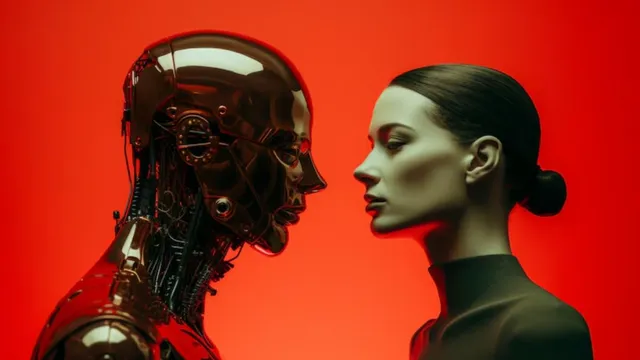- By Supratik Das
- Mon, 02 Jun 2025 09:36 AM (IST)
- Source:JND
Artificial intelligence (AI) is no longer purely a technological phenomenon, it could soon undermine the very existence of human society, warns Indian-origin AI expert Prof. Subhash Kak, a key voice in the world AI debate. In a chilling prediction, Prof. Kak predicts that the Earth's population may shrink to 100 million by the year 2300, and cities such as New York and London will become empty "ghost towns.". Talking to UK-based newspaper The Sun, Prof. Kak, Oklahoma State University Regents Professor of Electrical and Computer Engineering, stated that AI will soon dominate "everything", from jobs to decision-making and even parenting. “Computers or robots will never be conscious, but they will be doing all that we do,” he said.
Prof. Kak warned that society isn't ready for the unprecedented disruption that AI will cause soon. "It's going to be devastating for world society," he explained, predicting that the majority of professions, from corporate decision-making to medicine, will become automated in the next two centuries. This huge change, he contends, will render child-rearing economically and socially unviable, causing a precipitous decline in world birth rates. "People need to cease having babies. The steepest population decline is currently happening in South Korea, but comparable trends are observable in Europe, China, and Japan," he added.
According to population statistics and rising trends in AI, Kak predicts the world's population, which is now more than 8 billion, would drastically drop to merely 100 million by the year 2300 or 2380. "That's roughly the size of the UK's population now," he explained, while huge cities would turn into "ghostlands" with humans moving away or disappearing through the collapse of society. The warning aligns with similar concerns voiced by tech billionaire Elon Musk, who has frequently spoken about the dual threat of AI advancement and declining birth rates. Prof. Kak, in his best-selling book, The Age of Artificial Intelligence, delves into the social, philosophical, and civilizational implications of AI. He postulates the concept of an "AI State"—a bureaucratic regime controlled by algorithms in which machine logic subverts human wisdom in decision-making. He argues these systems already affect policy-making in the European Union and the United States, where political correctness, climate directives, and mass migration policies are increasingly influenced by algorithmic reasoning instead of grassroots requirements.
Modi’s Take: AI Changes Jobs, Doesn’t Eliminate Them
In contrast with Kak's dire prediction, Prime Minister Narendra Modi, at the AI Action Summit in Paris early this year, comforted world leaders that the character of work changes with technology and does not altogether disappear. “History shows that work does not vanish due to technological shifts, it transforms,” the Prime Minister declared, highlighting the potential of AI to bring in new sectors of employment. Following the Indian Knowledge Tradition (IKT) and Hindu philosophy, Kak promotes an ethical platform for AI development based on spiritual and cultural consciousness. He underlines that India, rich in Paninian grammar, Boolean logic, and cognitive science heritage, can spearhead worldwide AI initiatives with a value-based platform. “Culture and memory serve as safeguards for human dignity,” Kak writes, warning that AI in the hands of authoritarian states or tech monopolies could lead to historical erasure and ideological control.
ALSO READ: Elon Musk Just Built His Own City: What Is Starbase? Here’s What You Need To Know
AI’s Double-Edged Sword: Innovation Vs Extinction
While documenting the potential of AI in robotics, medicine, education, and farming, Prof. Kak is cautious about its sinister connotations. He mentions instances such as vaccine passports and the debanking of protesters to illustrate the potential misuse of AI applications by governments. "AI will be used by tech oligarchs and totalitarian governments to control the narrative, delete history, and crush dissent," Kak warns. As the controversy surrounding AI builds, Prof. Kak's book depicts the long-term consequences of unbridled technological progress. With his prognostications based on facts, civilisational backdrop, and moral urgency, The Age of Artificial Intelligence is at once a warning and a manual for charting humanity's future with AI.

